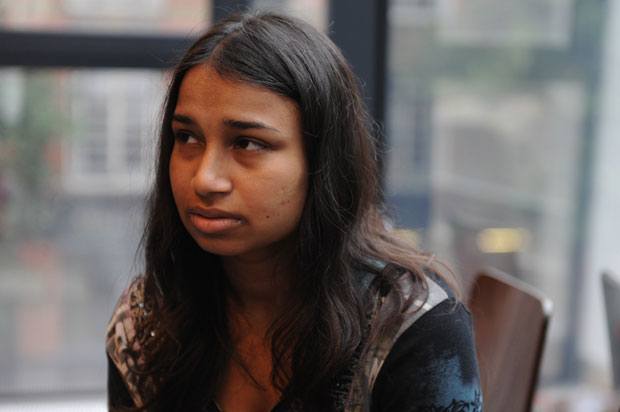Mindfulness
Mindfulness can be really helpful when it comes to managing your mental health. But what is it, and how can you make it work for you? The Mix tells you everything you need to know about Mindfulness.

It's so much easier to stay mindful on a beautiful beach...
What is mindfulness?
Mindfulness is the practise of taking time to assess your current situation, by means of activities such as meditation, breathing and yoga. The aim is to help you become more aware of what’s going on in the present moment, which can be really useful if you experience anxiety. When we’re going through periods of stress, it can be really tough to take a step back and see the positives in life. Mindfulness can help you to pay attention, and appreciate moments that you might not otherwise remember.
Luisa, 23, puts it like this: “Mindfulness is less a practice, more a way of life. It’s about becoming aware of what’s actually happening in the here and now, not focusing on what has happened or what might happen.”
You may hear some different acronyms about mindfulness. Here’s what they mean:
Mindfulness-Based Stress Reduction or MBSR
This often helps people who are stressed at work or in their relationships. Stress is a part of all of our lives – MBSR techniques can help to relieve that feeling, even for a short period of time.
Mindfulness-Based Cognitive Therapy or MBCT
This type of therapy combines mindfulness techniques with elements from cognitive therapy to help improve mental health. This is particularly helpful with depression and anxiety.
What are the benefits of mindfulness?
Mindfulness has many benefits. Taking the time to take stock of your surroundings and present situations truly can work wonders for the mind. Through becoming more aware of each situation you’re better placed to deal with it. The benefits of mindfulness can include:
- Better focus and concentration
- Appreciating the here and now
- Improved memory
- Reduced stress and anxiety levels
- Learning to deal with depression and better understand emotions
Abida, 17, has been practicing mindfulness for over a year and she’s seen many benefits. “I used to get overwhelmed by difficult emotions and then turn to negative behaviours,” she says. “But both my negative thoughts and self-harm decreased once I started doing mindfulness.”
For 27-year-old Kate, it helps her deal with everyday situations better. “It has given me a toolkit for stressful situations,” she says. “Everything from the bus being late through to being harassed in the street. I move on from setbacks more quickly than I used to.”
How do I learn mindfulness?
The beauty of mindfulness is that anyone can learn it, and there are many different options from self-help courses to actual classes.
If you’re hoping that mindfulness will help you to deal with a mental health issue, it’s always best to consult your GP or mental health team first. They may be able to refer you for a course – but you can also search for a private course or practitioner.
How much does it cost?
It depends on which approach you’re using. If you get a book out of a library and are dedicated to following the exercises then it’s possible to learn it for free. Or you may be referred via the NHS at no cost.
Private courses and sessions vary in price, so always look for recommendations and compare a few options and prices before deciding which is best.
Mindfulness activities
If you’re on a budget or are considering exploring mindfulness, you don’t need to pay to be able to do it. In fact, many people choose to learn through self-help methods which are free or cheap to do, such as:
Books and online
There’s plenty of advice the Bemindful website has a recommended reading list with useful reviews of books that can help with mindfulness.
Meditation
There are plenty of apps that can help with guided meditation techniques. This is really helpful if you’re new to meditation.
Yoga
Yoga is known to reduce heart rate and lower blood pressure, both of which are impacted by anxiety and stress.
Gratitude diary
Keeping a gratitude diary involves simply noticing things throughout your day that made you happy whether they’re big or small things. It helps to build a positive mindset.
Walking
Wanting to go out and do any activity when you’re feeling low can be incredibly difficult, but even going for short walks outside is proven to boost your mood.
The key to building a helpful mindful practice is to keep it regular. If you can build these activities into your day to day, and truly make an effort to stand by it then it can really help you long-term. For example, you might decide to meditate just before you have breakfast or lunch, or you might choose to write in a gratitude diary just before you go to bed.
What if mindfulness doesn’t work for me?
Lots of people warn that it can take a while to learn how to integrate mindfulness into your life properly. Give it time before you write it off completely. Even if it doesn’t work for you, it’s okay – it’s not for everyone. You needn’t worry that there’s something wrong with you!
“It isn’t going to make the world perfect and it won’t sort everything out overnight. It requires commitment and effort to actually get results, but it’s worth it in the end,” explains Luisa.
If you still aren’t finding it helpful after some time then it’s worth talking to your GP about other options. If you’re looking for help with a specific mental health problem, there are lots of other talking treatments and medications you can discuss.
Next Steps
- Chat about this subject on our Discussion Boards.
By Holly Turner
Updated on 06-Apr-2021
No featured article










